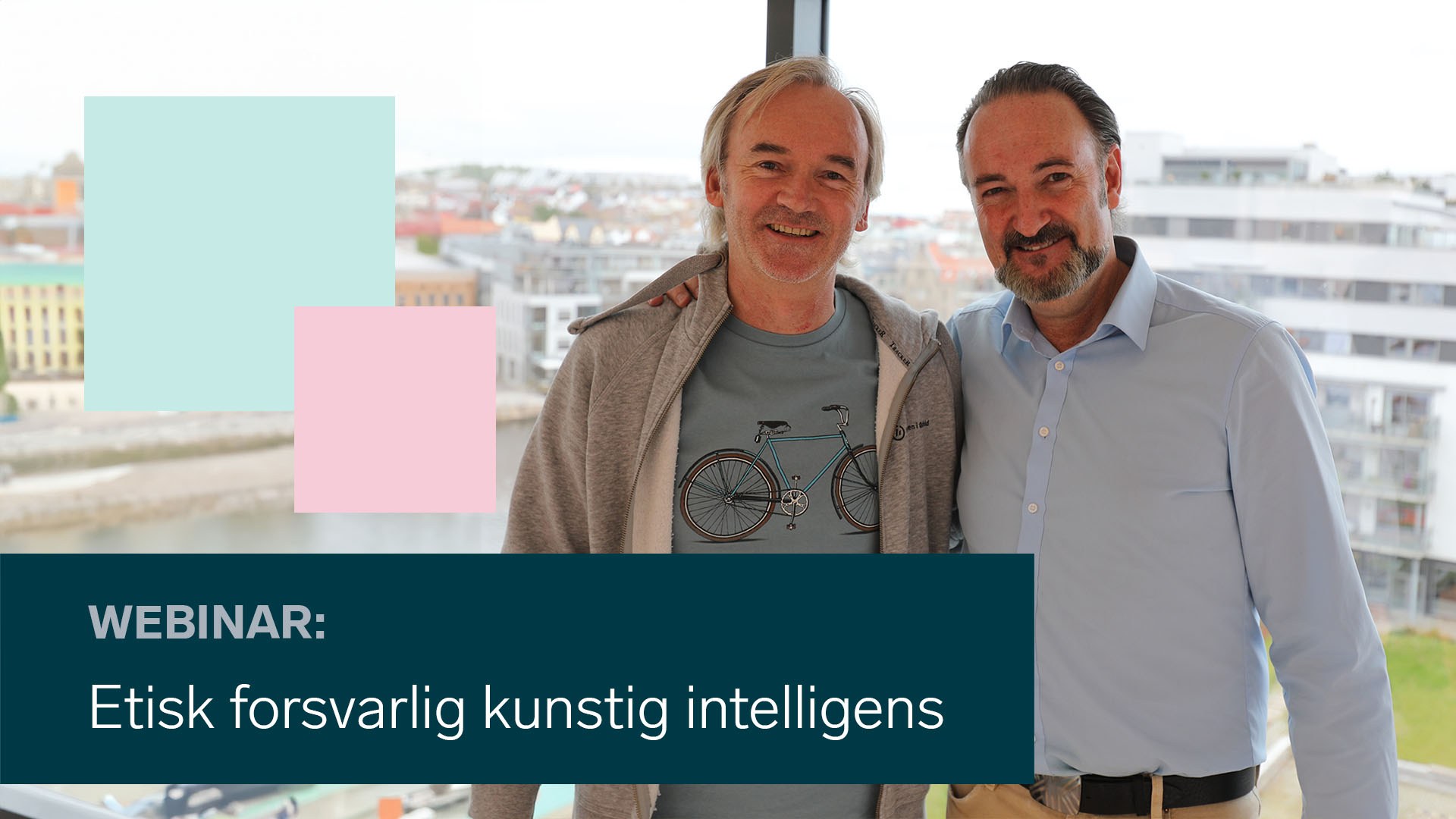Ethically sound artificial intelligence
How do we know what artificial intelligence is suitable for, and who benefits most from it?
We have investigated ethical principles for good artificial intelligence.

We need to keep technology in the best interests of humans. How do we equip artificial intelligence with a moral compass?
How can we trust artificial intelligence? The question is particularly relevant in the healthcare sector, where the worst-case scenario could lead to patient injury or death.
Presentation by Pedro Kringen and Frode Ramstad Johansen at Trustworthy AI Lab, Østfold University College.
The researchers contribute to a global network that assesses the ethical integrity of artificial intelligence projects. The evaluations are based on several principles and requirements, such as safety, privacy, diversity and responsibility. At the webinar, the researchers will present examples in the field of health and the methods they use to evaluate good artificial intelligence.
The Trustworthy AI Lab at Østfold University College is part of an interdisciplinary and international research community to evaluate and discuss the responsible use of artificial intelligence. It is one of 25 labs linked to universities globally, as part of the Z-Inspection® Initiative. The lab aims to encourage debate and reflection on the responsible use of artificial intelligence, and conducts concrete evaluations of AI solutions.
Dr Pedro Kringen is a Medical Evidence Manager with a strong background in project management in clinical development and medical affairs. He is a member of the Z-inspection® Trustworthy AI Initiative Lab at Østfold University College and participant in several international assessments.
Dr Frode Ramstad Johansen is Associate Professor of Innovation Processes at Østfold University College, Department of Engineering. He is head of the Trustworthy AI Lab at Østfold University College.
Recording
You can download the podcast to your mobile on Apple Podcasts, Spotify or Podbean. Search for ‘Norwegian Centre for E-health Research’.